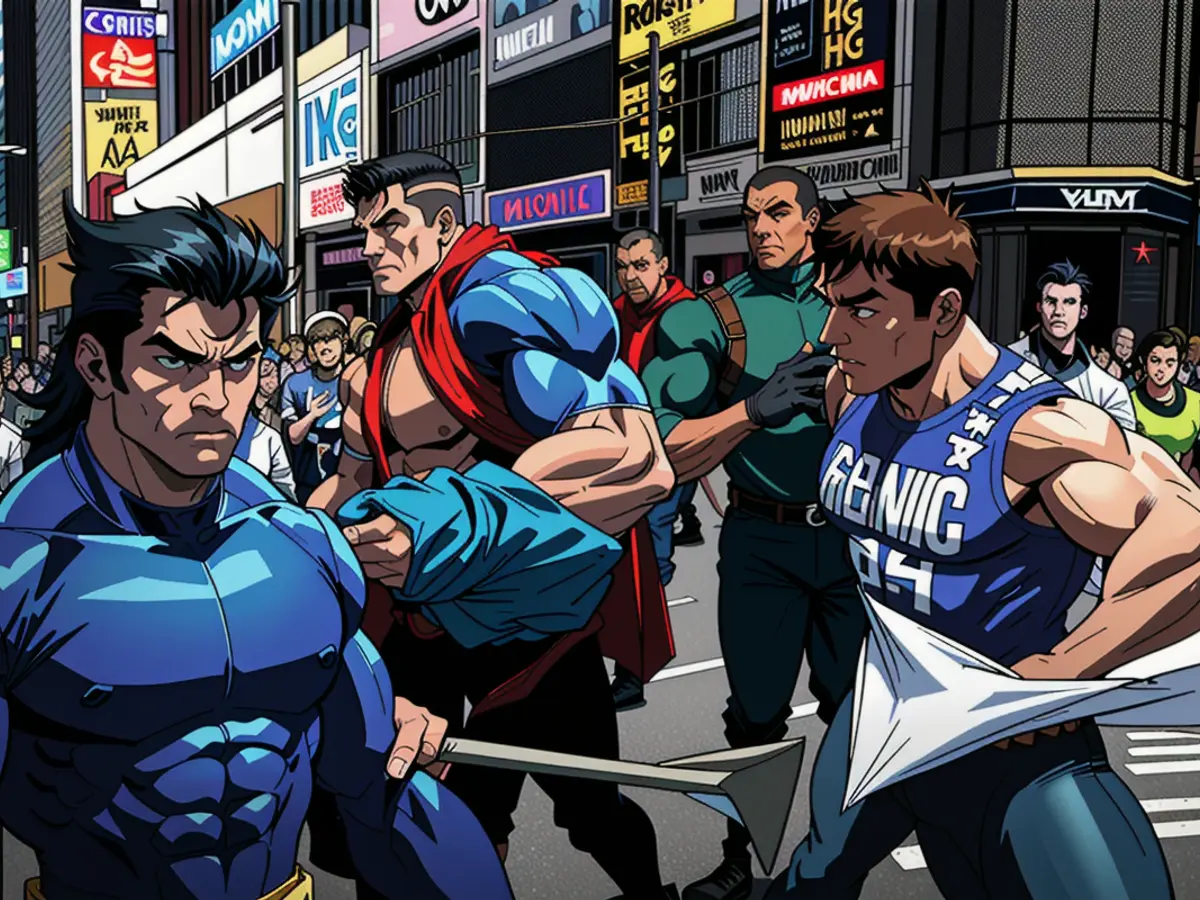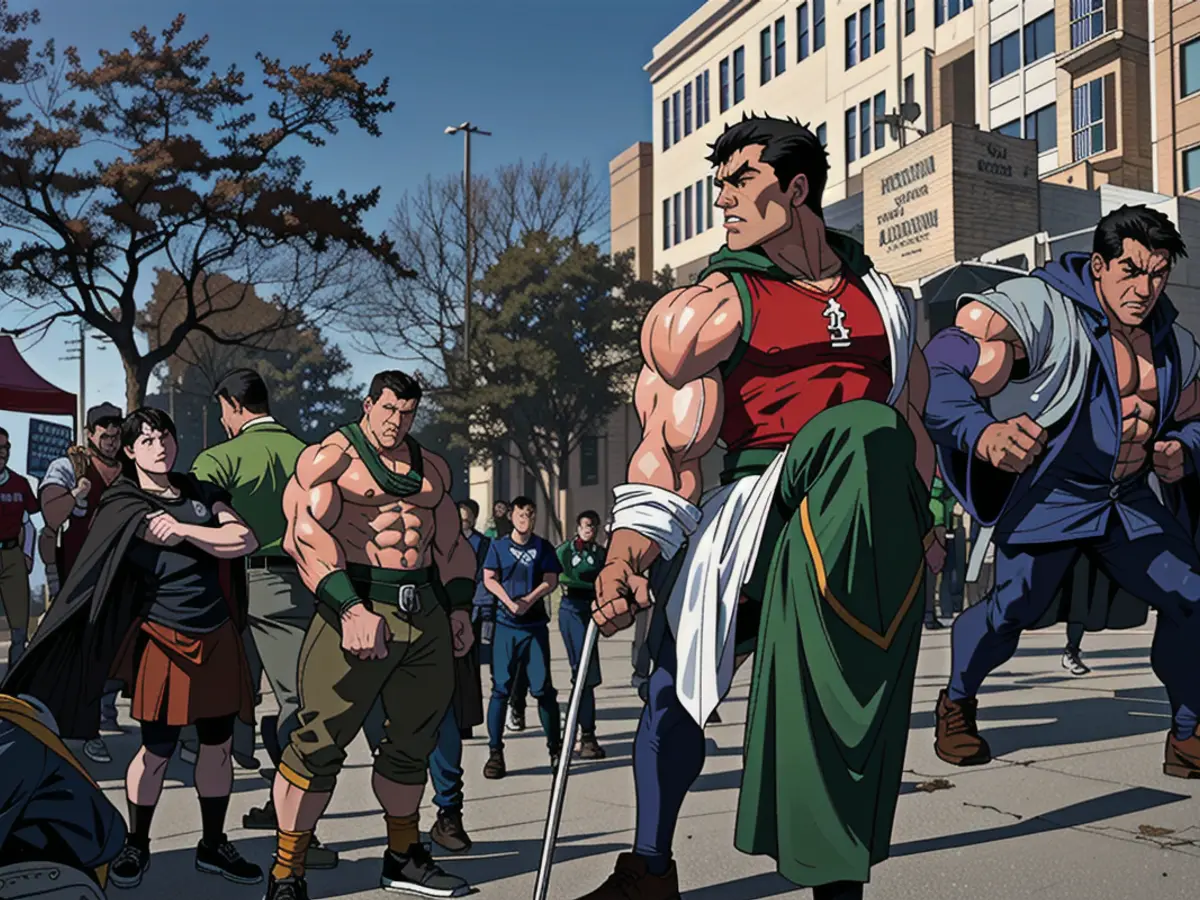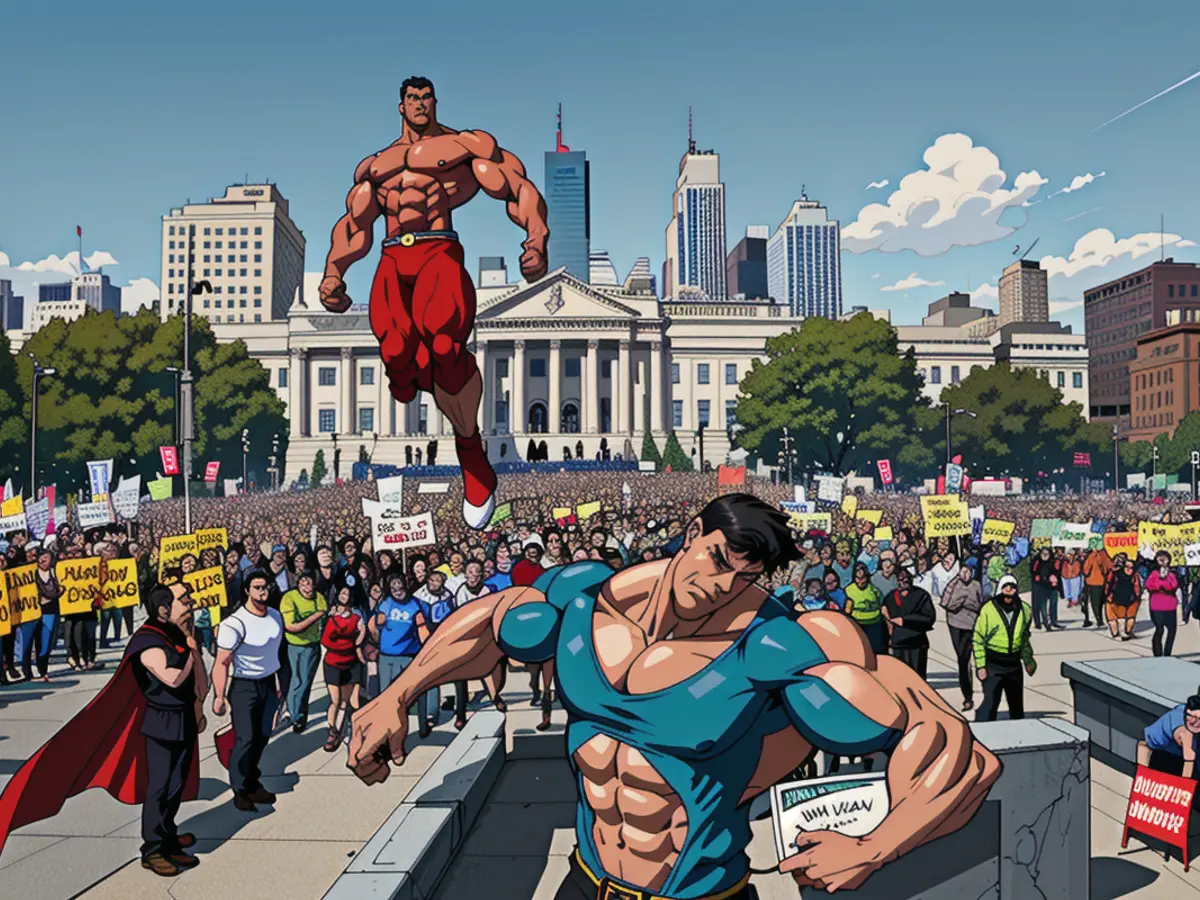University demonstrations face increasing restrictions under Trump's administration, inspiring activists who view this as a catalyst for further action.
At Columbia University, the atmosphere has dramatically transformed under a fresh wave of seemingly security-focused policy changes, as reported by over a dozen students and faculty members interviewed by CNN. These changes have generated an underlying tension on campus, a stark contrast to the image Maria, a master's student at Columbia, had of the university when she enrolled last spring.
"I envisioned landing at Columbia, a prestigious institution famous for its protests and human rights movements," Maria shared with CNN. However, mere days after she started, an on-campus pro-Palestinian protest was met with NYPD intervention, setting the stage for the university's growing reputation as a symbol of the Trump administration's ongoing pursuit of higher education.
The Trump administration's initiatives targeting universities have been justified as measures to fight antisemitism and enhance national security. Universities, particularly elite institutions, have long championed the cause of free speech, and for many students and faculty members, the current conflict transcends party politics. It centers on preserving the fundamental values of free expression and the right to dissent.
Maria expressed her concerns that the administration's actions signify a clear message: "In our country, dissent is no longer viable as a form of social participation." Columbia isn't alone in confronting pressure. Recently, the Trump administration has taken action, including suspending $210 million in research grants to Princeton University, reviewing $510 million in funding for Brown University, and investigating several universities for their Diversity, Equity, and Inclusion (DEI) programs and reports of antisemitism.

Columbia's current security policies, announced last month following the cancellation of federal grants, have led to concerns among students. The changes effectively ban protests inside and near academic buildings, enforce a mask ban during protests, and increase the campus police force. Maria observes that the campus now feels militarized and heavily monitored. "Security officers are everywhere, making us feel uncertain and fearful," she said.
Allie Wong, a PhD student at Columbia, echoed Maria's sentiments, describing the atmosphere on campus as marked by pervasive fear, especially for Wong, who has witnessed firsthand some of the consequences of the administration's crackdown. Last month, Wong briefly visited Canada with a fellow PhD student who left the US after Immigration and Customs Enforcement (ICE) agents repeatedly appeared at her door. Homeland Security Secretary Kristi Noem publicly referred to the student as "one of the Columbia University terrorist sympathizers."
While some have found relief in Columbia's new policies, notably Jewish students, critics argue that the measures set a concerning precedent, potentially stifling all forms of expression regardless of cause. According to Michael Cooperson, a professor of Arabic at UCLA, "The administration's antisemitism pretense serves as a pretext for stifling free expression."

As the conflict deepens, student activists are showing signs of resistance, such as the protests held at UC Berkeley in response to the Trump administration's actions. Activists argue that student protests will continue, regardless of institutional and donor opinions, as demonstrated by UCLA's history of suppressing Vietnam War protests and the controversial on-campus deaths of Black Panther Party members in the 1960s.
In response to the administration's actions, labor unions representing professors and educators have taken legal action, suing the Department of Education, the Department of Homeland Security, and several other government agencies over the revocation of $400 million in funding to Columbia University. The lawsuit contends that the Trump administration's actions represent an "unlawful and unprecedented effort to usurp a university's academic autonomy and control the thought, association, scholarship, and expression of its faculty and students."
As the controversy unfolds, Columbia is far from the only institution at the forefront of this battle. The fundamental principles of academic freedom, free speech, and the balance between government oversight and institutional autonomy in higher education are at stake. Whether students, faculty, and activists can resist the pressure to conform or remain silent remains to be seen.

- Despite the growing concerns among students at Columbia University, some Jewish students have found relief in the new campus policies, which critics argue may have repercussions that stifle all forms of expression, regardless of cause.
- The ongoing tension at Columbia, characterized by the militarized campus atmosphere and pervasive fear, has galvanized student activists to resist the administration's actions, mirroring past incidents of student protests against government oversight, such as the suppression of Vietnam War protests and the controversial deaths of Black Panther Party members on UCLA's campus in the 1960s.
- In the face of the Trump administration's actions, labor unions representing professors and educators, like those at Columbia, have taken legal action, aiming to protect academic autonomy and the balance between government oversight and institutional autonomy in higher education, asserting that these actions represent an unlawful and unprecedented effort to control thought, association, scholarship, and expression on campus.








